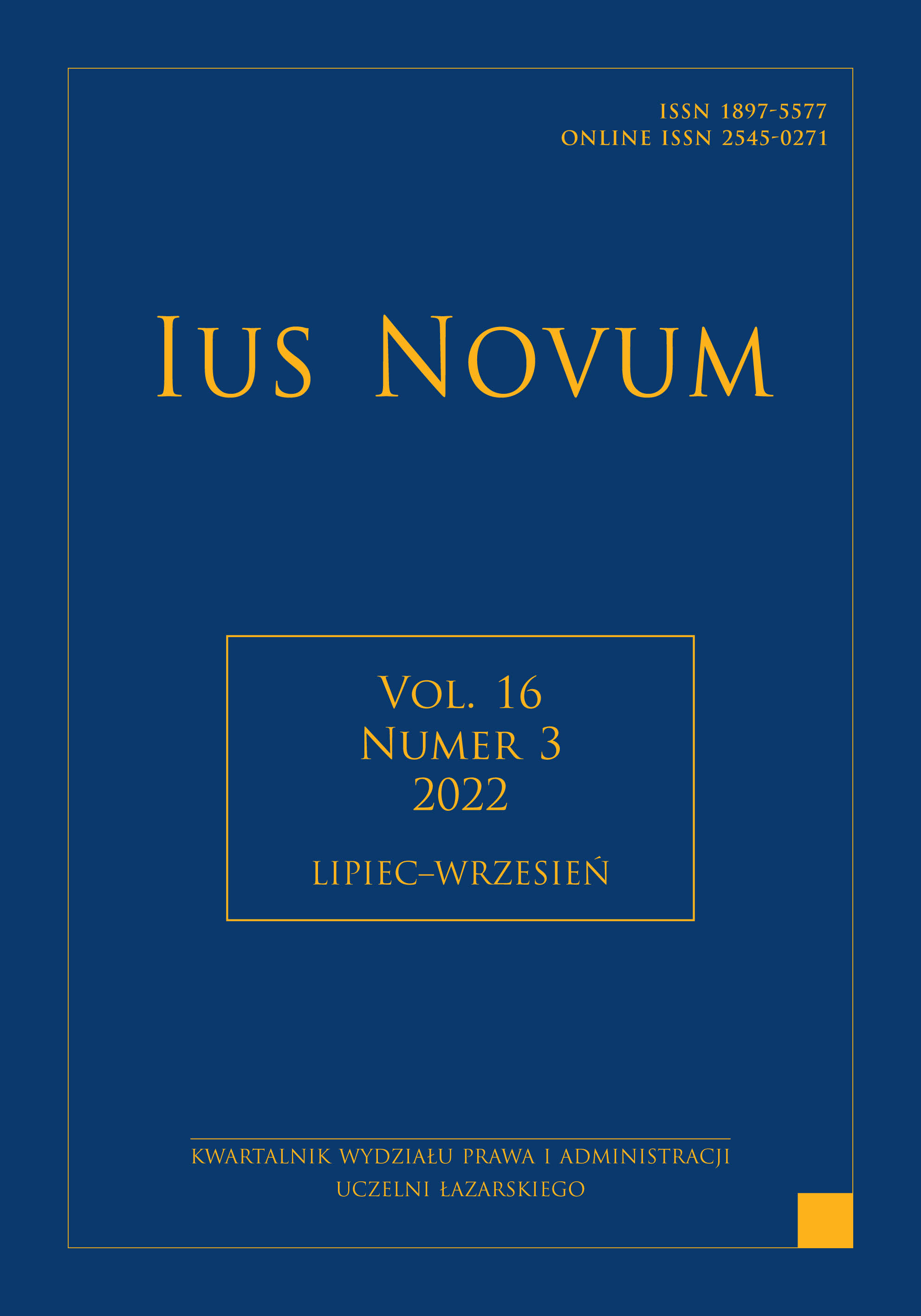Abstract
According to the well-established Supreme Court’s case law, the civil court is entitled to
determine independently whether a tort constitutes a criminal offence even in the absence
of a final judgement of conviction. This opinion was expressed by the Supreme Court for
the purpose of applying the extended limitation period under Article 4421 § 2 of the Civil
Code for claims for a tort that is a crime. The Supreme Court’s statement raises doubts on the
grounds of the presumption of innocence. The purpose of this article is firstly to present the
standard concerning the scope of the presumption of innocence in civil proceedings, created
by the European Court of Human Rights on the basis of Article 6 § 2 of the ECHR, according
to which everyone charged with a criminal offence shall be presumed innocent until proved
guilty according to law. Then it is the assessment of the compatibility of the Supreme Court’s
opinion through the perspective of the Convention standard.
References
Gardocki L., Pojęcie przestępstwa i podziały przestępstw w polskim prawie karnym, „Annales Universitatis
Mariae Curie-Skłodowska” 2013, nr 2.
Garlicki L. (red.), Konwencja o Ochronie Praw Człowieka i Podstawowych Wolności. Tom I. Komentarz
do artykułów 1–18, Warszawa 2010.
Grochowska-Wasilewska A., Zakład ubezpieczeń jako podmiot uważany za pokrzywdzonego w procesie
karnym, Warszawa 2021.
Jasiński W., Prawo do nieobciążania się w procesie karnym w świetle standardów strasburskich, „Prokuratura
i Prawo” 2015, nr 7–8.
Kruszyński P., Zasada domniemania niewinności w świetle najnowszego orzecznictwa Europejskiego
Trybunału Praw Człowieka w Strasburgu, „Gdańskie Studia Prawnicze” 2003, nr 2.
Lach A., Glosa do wyroku ETPC w sprawie Diacenco przeciwko Rumunii z 7 lutego 2012 roku, skarga
nr 1245/04, „Studia Iuridica Toruniensia” 2014, t. 14.
Murzynowski A., Istota i zasady procesu karnego, Warszawa 1976.
Reid K., A Practitioner’s Guide to the European Convention on Human Rights, Londyn 2012.
Tęcza-Paciorek A., Zasada domniemania niewinności w polskim procesie karnym, Warszawa 2012.
Vitkauskas D., Dikov G., Protecting the Right to a Fair Trial Under the European Convention
on Human Rights, Strasbourg 2017.
Warciński M., Przedawnienie roszczenia o naprawienie szkody wyrządzonej przez nieznanego sprawcę
wypadku komunikacyjnego wobec Ubezpieczeniowego Funduszu Gwarancyjnego, „Przegląd
Sądowy” 2015, nr 10, s. 9.

